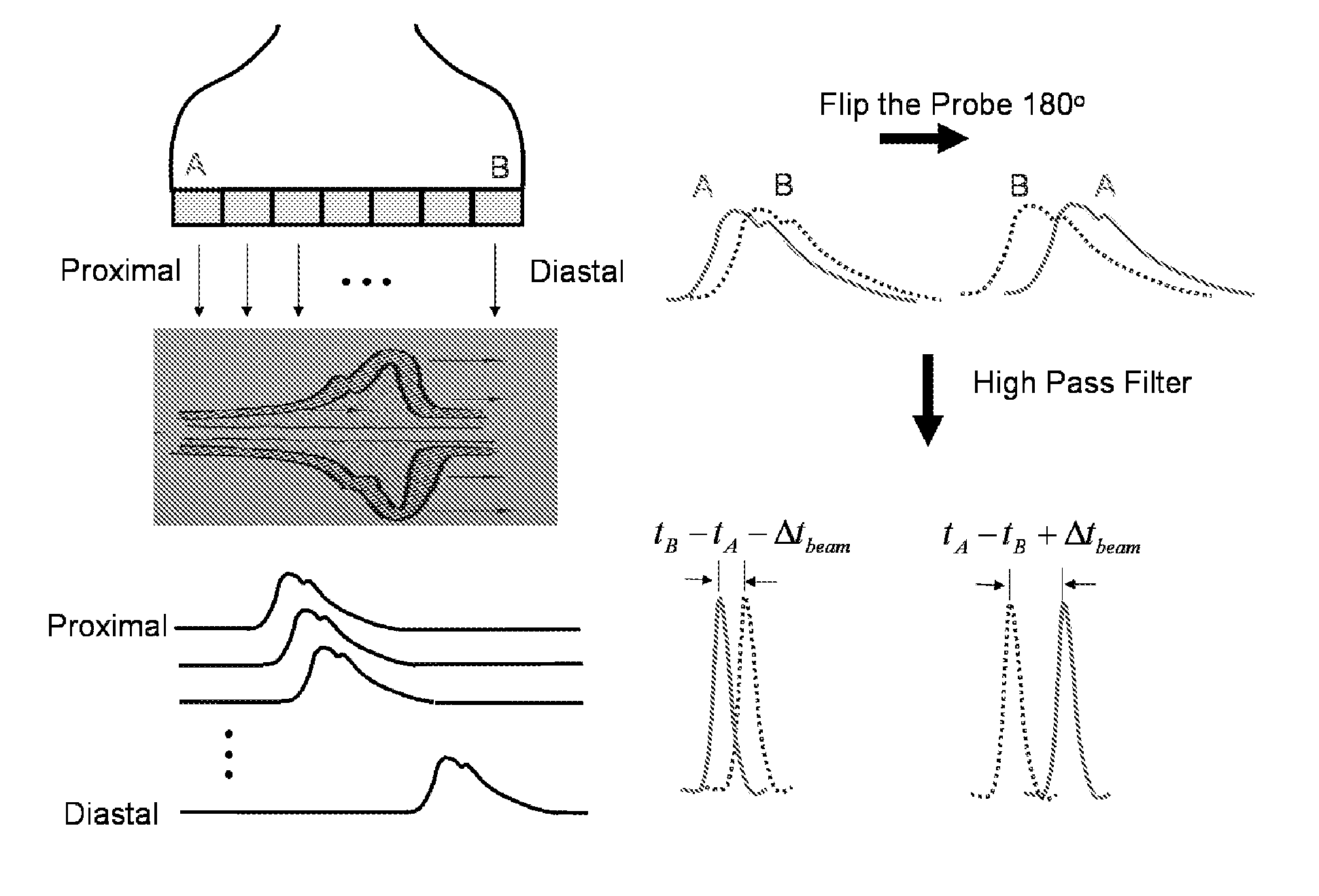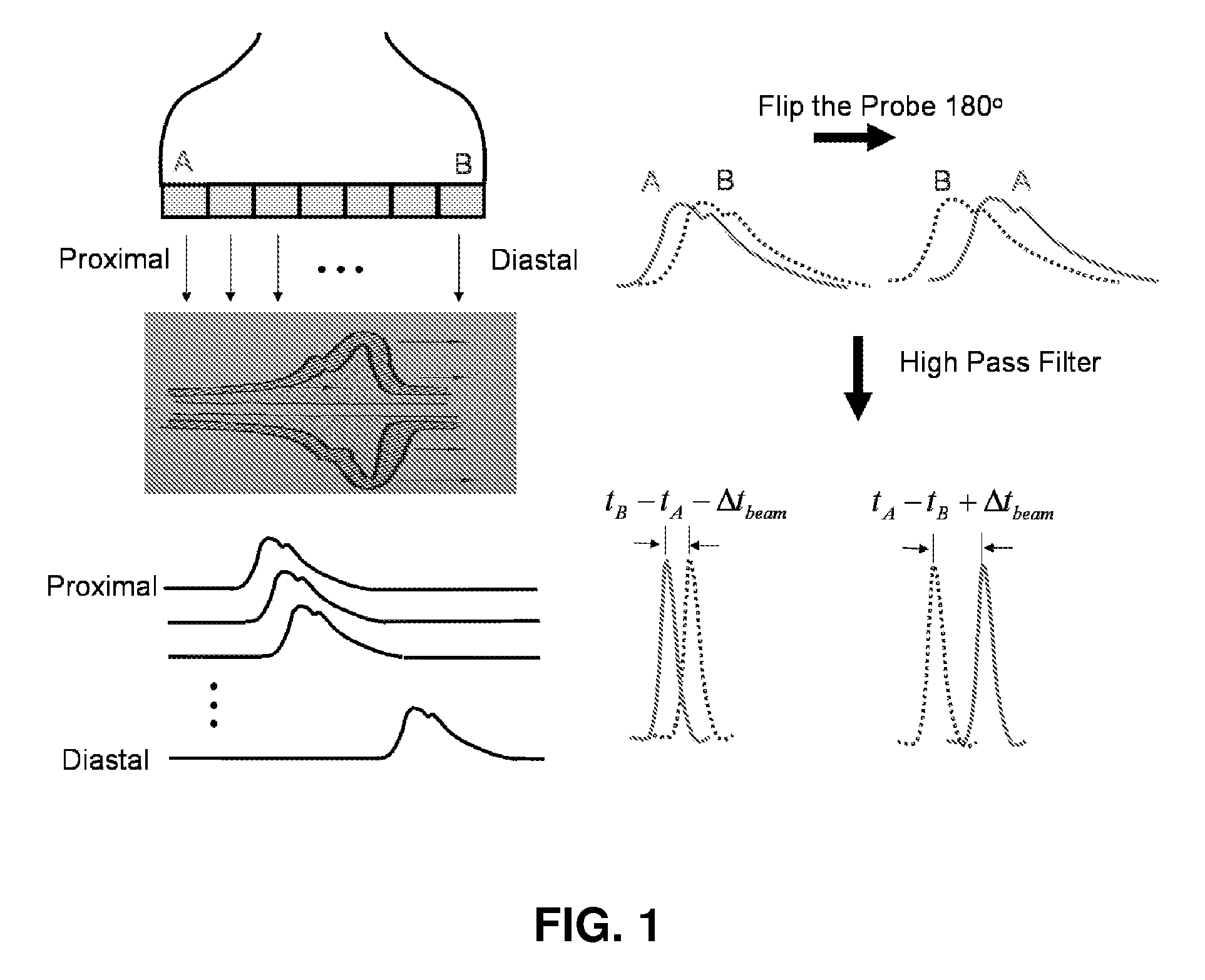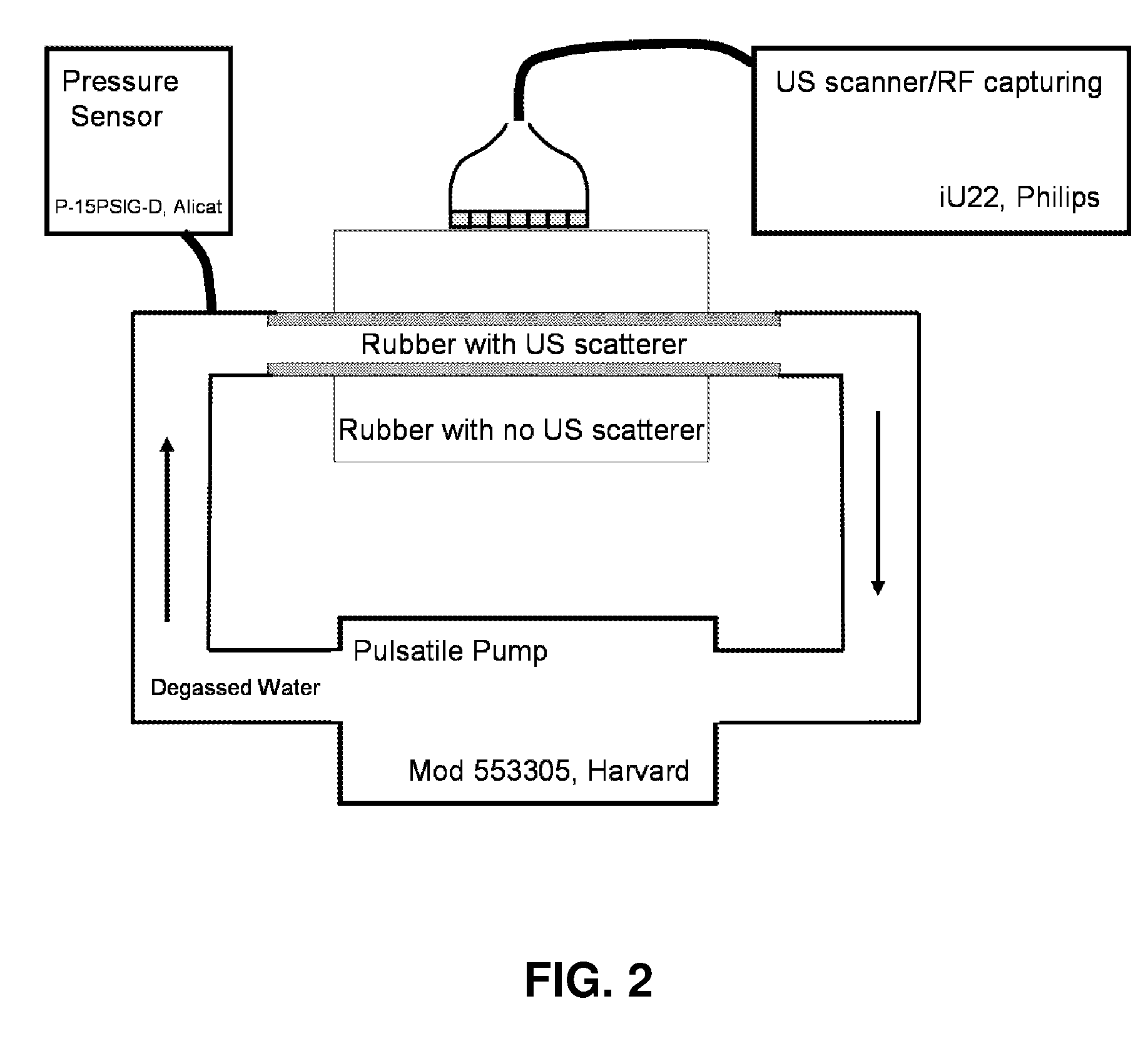Measurement of tissue elastic modulus
a tissue elastic modulus and measurement technology, applied in the field of tissue elastic modulus measurement, can solve the problems of the accuracy of extrapolated displacement cannot be as accurate as the direct estimate of displacement, and the inability to accurately estimate the displacement of the tissue, so as to enhance the measurement and quantification of arterial compliance, improve the effect of measuring arterial complian
- Summary
- Abstract
- Description
- Claims
- Application Information
AI Technical Summary
Benefits of technology
Problems solved by technology
Method used
Image
Examples
example a
Ex-Vivo Phantom Model
[0046] An elastic modulus reconstruction procedure can be developed from independent measurements of intramural strain and PWV. A rubber phantom model is used to demonstrate the present teachings.
[0047] PWV Estimation Using Near Parallel M-Mode: Longitudinal Scan
[0048] Time delay over the estimated local distance between two measurement sites determines local PWV. To avoid any interference from reflections, the first arrival part of the wave can be chosen to estimate the time delay. However, as the wave initiates, the signal is not high enough to correctly estimate the time delay. To overcome this, the sharp edge corresponding the start of systole can be high-pass filtered to accurately estimate time delay (temporal resolution) before the reflected part of the wave interferes (i.e., by causality, a significant reflection cannot proceed the primary signal).
[0049] Correlation-based phase sensitive speckle tracking can be used to trace the frame-to-frame intram...
example b
In Vivo Application
[0074] To assess the clinical feasibility, in-vivo free-hand ultrasound scanning procedures were performed on two subjects under a study protocol approved by our local investigational review board. The first was a 45 year old healthy male volunteer and the second was a 59 year old with diabetes, hypertension and end stage renal disease on hemodialysis.
[0075] The same 12 MHz linear array (L12-5, Philips) used for the ex-vivo experiments was used with continuous freehand compression performed on the surface of the left upper arm close to the brachial artery. To characterize arterial elasticity over a large deformational dynamic range, pressure equalization was also applied, as described herein. While imaging the cross-section of the brachial artery at a rate of 211 frames per second for strain measurements and 411 frames per second for PWV measurements, and collecting ultrasound data frame by frame, surface compression was performed. For the healthy subject, frame...
example c
Another In Vivo Application
[0093] An optimized elastic modulus reconstruction procedure was developed to estimate the nonlinear elastic properties of the vascular wall from intramural strain and pulse wave velocity (PWV) measurements. A noninvasive free-hand ultrasound scanning procedure was used to apply external force, comparable to the force in measuring a subject's blood pressure, to achieve higher strains by equalizing the internal arterial baseline pressure. PWV was estimated at the same location where intramural strain was measured by simply rotating the ultrasound probe by 90 degrees. The reconstructed elastic modulus was optimized using least squares estimation from two separate measurements. Preliminary in-vivo results demonstrate that arterial elastic modulus can be determined and monitored using a simple dual elastic modulus reconstruction procedure.
[0094] In previous studies, a pressure equalization technique was developed to fully characterize nonlinear arterial elas...
PUM
 Login to View More
Login to View More Abstract
Description
Claims
Application Information
 Login to View More
Login to View More - R&D
- Intellectual Property
- Life Sciences
- Materials
- Tech Scout
- Unparalleled Data Quality
- Higher Quality Content
- 60% Fewer Hallucinations
Browse by: Latest US Patents, China's latest patents, Technical Efficacy Thesaurus, Application Domain, Technology Topic, Popular Technical Reports.
© 2025 PatSnap. All rights reserved.Legal|Privacy policy|Modern Slavery Act Transparency Statement|Sitemap|About US| Contact US: help@patsnap.com



